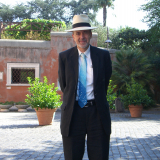In-depth interviews were conducted with 395 households in three rural communities in the Nsukka district of Anambra State, Nigeria, concerning their household water use practices, water expenditures to vendors, willingness to pay for improved water supplies, and household socioeconomic characteristics. Households in Nsukka district do not want to pay for water in advance or commit themselves to a fixed monthly payment for water. They want the freedom to buy water only when they use it, partly due to the seasonal nature of water use and partly because they want control over their cash flow in order to meet other more immediately pressing needs.
Equally important, they do not trust government to provide a reliable public water supply. They do not want to pay in advance for a service they are not sure they will ever get. If they are required to pay a fixed fee every month, households are willing to pay only relatively small amounts for improved services, even less than they are currently paying water vendors. Current arrangements for cost recovery, fixed monthly fees for both public taps and unmetered private connections, are inappropriate. Kiosk systems, or kiosk systems with metered private connections for some households, are the most promising way to improve cost recovery and meet consumers' cash flow needs.
